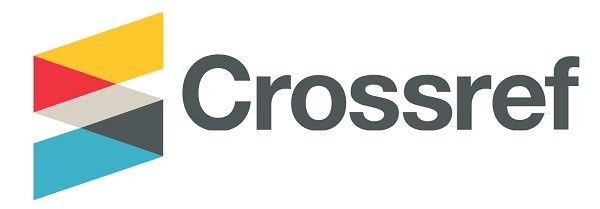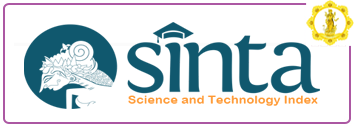IMPLEMENTATION OF ISO 21001:2018 ON QUALITY CULTURE IN HIGHER EDUCATION WITH THE WORK OF LECTURERS AS A MEDIATION VARIABLE
DOI:
https://doi.org/10.25078/jpm.v11i01.3715Keywords:
ISO 21001:2018; Lecturer Job Satisfaction; Quality Culture; Quality AssuranceAbstract
The culture of quality in the college is the ability to build a reputation and achieving the goals of the organization sustainably. The ISO 21001:2018 standard is one of the international quality assurance instruments that is required not only for institutional accreditation but also to ensure that the entire internal processes of the organization are carried out properly and consistently. The study aims to analyze (1) the impact of ISO implementation on a quality culture, (2) the effect of implementation of ISO on lecturer job satisfaction, (3) the influence of lecturer work satisfaction on a Quality culture, and (4) the impact on quality culture through lecturer employment satisfaction. Research method is quantitative research with inferential statistical approaches using structural equation modelling (SEM). The data was collected from 110 lecturers in the area of the Faculty of Economics and Business of Muhammadiyah University of Makassar and then the data was analyzed using Partial Least Square with the help of SmartPLS 3.0 Software. The research findings are that (1) the implementation of ISO 21001:2018 has a positive relationship but its impact is not significant directly on the culture of quality in colleges, (2) the implementations of ISO21001: 2018 have a positive link with a significant direct impact on the satisfaction of the faculty in the university, (3) the dissatisfaction of faculty has a positively related relationship with a substantial direct effect on the quality culture in the college, and (4) ISO 21001:2018 implementations have positive and influential relationships with the Culture of Quality when mediated by faculty satisfaction in the colleges.
Downloads
References
Ahmed, A.O. and Idris, A.A. (2021), "Examining the relationship between soft total quality management (TQM) aspects and employees' job satisfaction in “ISO 9001” Sudanese oil companies", The TQM Journal, Vol. 33 No. 1, pp. 95-124. https://doi.org/10.1108/TQM-05-2019-0147
Armstrong, M. (2017). Armstrong on reinventing performance management: Building a culture of continuous improvement. Kogan Page Publishers.
Arribas Díaz, J.A. and Martínez-Mediano, C. (2018), "The impact of ISO quality management systems on primary and secondary schools in Spain", Quality Assurance in Education, Vol. 26 No. 1, pp. 2-24. https://doi.org/10.1108/QAE-06-2016-0028
Ataseven. (2013). ISO 9000 internalization and organizational commitment—implications for process improvement and operational performance. https://ieeexplore.ieee.org/abstract/document/6655906/
C. Ataseven, D. I. Prajogo and A. Nair, "ISO 9000 Internalization and Organizational Commitment-Implications for Process Improvement and Operational Performance," in IEEE Transactions on Engineering Management, vol. 61, no. 1, pp. 5-17, Feb. 2014, https://doi.org/10.1109/TEM.2013.2285344
Ghozali, I., & Latan, H. (2015). Partial least squares konsep, teknik dan aplikasi menggunakan program smartpls 3.0 untuk penelitian empiris. Semarang: Badan Penerbit UNDIP, 4(1).
Hair J.F., et al. (2010). Multivariate Data Analysis.Seventh Edition. New Jersey: Pearson Prentice Hall.
Jingura. (2019). Critical analysis of the applicability of the ISO 9001 Standard in higher education institutions. https://ir.cut.ac.zw/xmlui/handle/123456789/153
Kayyali, M., & Khosla, A. (2021). Globalization and Internationalization: ISO 21001 as a Trigger and Prime Key for Quality Assurance of Higher Education Institutions. International Journal of Applied Science and Engineering, 9(1), 67-96.
Kumar M, Antony J. (2009). Multiple case-study analysis of quality management practices within UK Six Sigma and non-Six Sigma manufacturing small- and medium-sized enterprises. Proceedings of the Institution of Mechanical Engineers, Part B: Journal of Engineering Manufacture. pp:925-934. https://doi.org/10.1243/09544054JEM1288
Levett-Jones, T., Lathlean, J., Higgins, I. and McMillan, M. (2009), Staff – student relationships and their impact on nursing students’ belongingness and learning. Journal of Advanced Nursing, 65: 316-324. https://doi.org/10.1111/j.1365-2648.2008.04865.x
Nortvig, A. M., Petersen, A. K., & Balle, S. H. (2018). A literature review of the factors influencing e‑learning and blended learning in relation to learning outcome, student satisfaction and engagement. Electronic Journal of E-learning, 16(1), pp46-55.
Pawlowski, J. M. (2007). The Quality Adaptation Model: Adaptation and Adoption of the Quality Standard ISO/IEC 19796-1 for Learning, Education, and Training on JSTOR. Educational Technology & Society, 3. https://doi.org/jeductechsoci.10.2.3
Powell, A., Watson, J., Staley, P., Patrick, S., Horn, M., Fetzer, L., ... & Verma, S. (2015). Blending Learning: The Evolution of Online and Face-to-Face Education from 2008-2015. Promising Practices in Blended and Online Learning Series. International association for K-12 online learning.
Samad, K. A., & Thiyagarajan, R. (2015). TQM in higher education–a conceptual model to achieve excellence in management education. Journal Impact Factor, 6(1), 634-645.
Sapuding, B., & Sholihah, I. M. (2024). Quality Assurance System of Islamic Education in Enhancing Satisfaction and Academic Services Based on ISO 21001:2018. Journal of Research in Educational Management, 2(2), 98–110. Retrieved from https://journal.literasantri.com/index.php/jrem/article/view/73
Zeng, S.X., Tian, P. and Tam, C.M. (2007), "Overcoming barriers to sustainable implementation of the ISO 9001 system", Managerial Auditing Journal, Vol. 22 No. 3, pp. 244-254. https://doi.org/10.1108/02686900710733125
Zmuda, A., & Kuklis, R. (2004). Transforming schools: Creating a culture of continuous improvement. ASCD.









